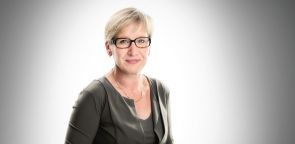
We must stand together and be innovative, with a shared vision for patient care research.
For 2014 alone, the French government allocated €4.4 billion to 28 projects as part of the nursing and paramedical hospital research programme. That is three times more than the funding set aside in 2012, for a programme launched just barely four years ago. This rapid growth reflects the promising development of patient care research.
Nursing, physiotherapy and ergotherapy are relative young fields in Europe in terms of academic research. In Switzerland, these areas have developed over the past ten years thanks to funding from the Do Research (DORE) programme, under the Swiss National Science Foundation (SNSF) and the backing from prestigious specialised schools. This support, geared specifically to promoting emerging fields of study, was offered to help them gradually gain the necessary expertise and set up research structures.
"This is no small feat. We must be effective and innovative, standing together with a shared vision of patient care research."
Now that this first step in the SNSF’s strategy is complete, the first PhD in nursing science earned in French-speaking Switzerland was awarded in 2013. To conduct and finance their scientific studies, researchers in these developing specialities must now look to the long-term structures of the SNSF and seek out support from foundations, organisations and specialised government research councils, as do others on the market.
This is no small feat. We must be effective and innovative, standing together with a shared vision of patient care research. Nursing science has taken this route with the Swiss Research Agenda for Nursing (SRAN). However, it needs to work on establishing more collaboration networks between universities, top specialised schools and hospitals, gradually increasing the quantity and quality
of proposed projects. Being newcomers could actually work in our favour, as we will be able to team up with existing research platforms and forge partnerships with government bodies and more experienced researchers, such as our physician colleagues.
That is how knowledge and patient care practices will continue to develop, guided by clinical research that will serve both patients and their loved ones.